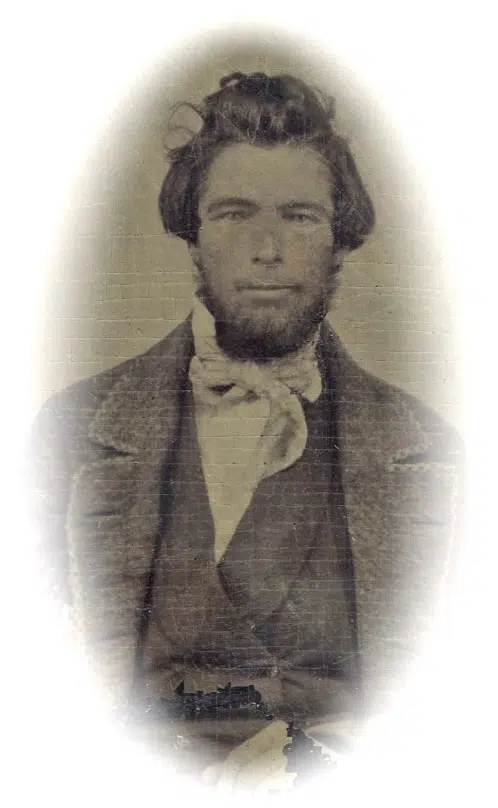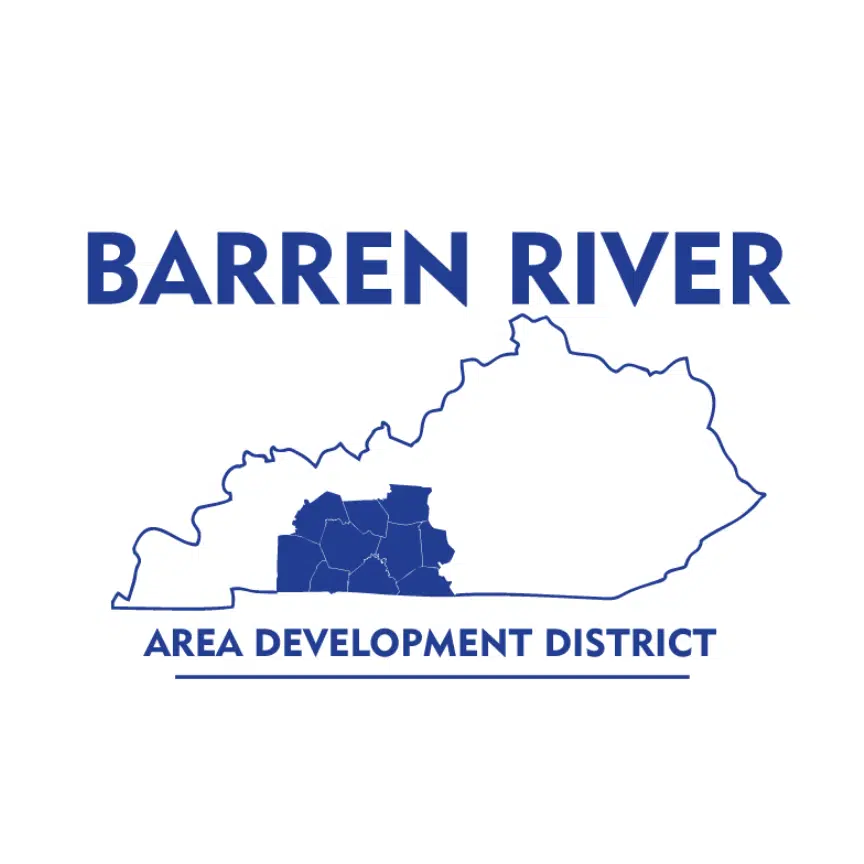
George was a Union soldier originally from Illinois that was part of the men who built Fort Williams in 1863. Photo courtesy of Sam Terry.
By MICHAEL CRIMMINS
Glasgow News 1
On Sept. 28 at the South Central Cultural Center, located at 200 W. Water St, beginning at 6 p.m. Glasgow resident Sam Terry will read original, never before heard letters written between husband and wife concerning his travels and the construction of Glasgow’s own Civil War fort: Fort Williams.
The event is being put on by the Barren County Historical Society. Terry said the event is open to the public free of charge and will last 45 minutes to an hour as he reads excerpts from the roughly 100 letters written by a Union soldier. Terry said the center will stay open late that night and after the event people are free to roam around the museum.
This is the product of 7 to 8 years, Terry said, that began when he found the first letter for sale on Ebay. He said he tried to convince the seller to give him all the letters for a wholesale price but to no avail.
“It’s unfortunate that these are being sold in piece-meal like this,” Terry said.
According to Terry the society has some of the original letters, but were given the chance to scan all of them.
In the letters, written to the soldier’s wife, he outlines his daily life, his travels, his schedule and construction — and sketches — of the fort that stand atop the hill at the Glasgow Municipal Cemetery.
The letters begin when the soldier leaves his hometown in Illinois who then, with his unit, traveled to Louisville before going to Muldraugh Hill, an escarpment in Bullitt, Hardin, Jefferson and Nelson counties.
From Muldraugh they traveled to Munfordville, arriving just weeks after the battle at Munfordville. During his time there, Terry said, he wrote about the devastation the war brought to the town — at one point writing about someone falling to their death in the Green River. From there the unit traveled to Rowletts, in Hart County, before finally arriving in Glasgow in the spring of 1863.
“When they get here he describes the town as small, quaint, seems like a nice place, lots of greenery…and among their orders was to build a fort,” Terry said. “George and his unit were part of the men who actually built Fort Williams.”
Terry said these letters “provide insights we’ve never heard before” like the soldiers daily schedules, the specifications of the fort, the food and the followers of the unit.
“It’s fascinating to read about the things these men were eating everyday and their schedule,” Terry said. “To read about what these guys were doing at the fort hour by hour.”
The event on Thursday will not be a mundane recitation of the letters, Terry said, but will go deeper into his life and his family and wrap up George’s story so as not to leave the audience unsatisfied.
“When you’re reading these letters you become invested in this man’s life and you want to know what happened,” Terry said. “So, I get into the end of his life and so forth and even his family.”
The ultimate goal is to publish these letters in a book form with the proceeds going to upkeep and benefit of the fort, Terry said. Such benefit would include plaques erected along the inside of the encampment detailing George’s journey and restoration.
The event also serves to commemorate the fort’s 160th anniversary, having been completed in 1863 and, though it is not going to be at Fort Williams as Terry originally planned, he is confident the program will be very entertaining and informative to people who are interested in history and those who are not.
“I promise you, it’s a fascinating program,” Terry said. “I’ve got degrees in history and I’ve learned so much just from reading the letters. It’s a fun time.”

Comments